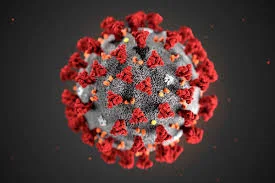The World Health Organisation has said the COVID-19 pandemic
might not be the last the world would witness, even as it called for sustained
fight against
the virus.
Country Representative, Dr Walter Kazadi Mulombo, disclosed
this at the ninth General Meeting and Scientific Conference of the
Epidemiological Society
of Nigeria held in Port Harcourt.
Mulombo said the pandemic has provided Nigeria and the
global community opportunity to strengthen immunisation, build capacity of
health workers and strengthen
disease surveillance.
He noted: “COVID-19 pandemic has taught us a great lesson on
preparedness. It is not yet over. It may not likely be the last pandemic.
Therefore, we must
sustain the tempo.”
Earlier, Chairman, Local Organising Committee of EPISON’s
ninth AGM, Dr Omosivie Maduka, said the event was imperative to evaluate the
epidemic and intelligence
tools used in the control of the pandemic.
“At the end of the conference, we will issue a communiqué
that will state our key observations concerning our successes and challenges
with the COVID-19
response in various aspects and we will be proffering our
expert opinion on what needs to be done, to be able to take us from where we
are to where we
need to be, which is a complete and total control of the
pandemic,” he said.
Nigeria, meanwhile, received 4 million doses of the Moderna
COVID-19 vaccine from the United States, yesterday, as the country steps up
efforts to battle
a third wave of infections.
The doses, which came on two planes, were received by
officials from the UN children agency, UNICEF, on behalf of Nigeria at the
airport in Abuja.
It was the second batch of vaccines to arrive in Africa’s
most populous nation after 4 million doses were delivered in March under the
COVAX scheme.
This came as the Nigerian Medical Association (NMA) and the
United States (US) Centre for Disease Control and Prevention (CDC) warned that
the Delta coronavirus
variant appears to cause more severe illness and spreads as
easily as chickenpox.
They said vaccination is not enough by itself to stop the
spread of variants and recommended combination with non-pharmacological
interventions such as
isolation and quarantine, physical distancing, use of
facemasks and hand hygiene.
President, NMA, Prof. Innocent Ujah, told The media ,
yesterday: “We need to be more careful because the Delta variant of is
spreading so fast and can
be very deadly. The government and the citizens have their
parts to play. While the government provides vaccines and other materials, the
people should
wear their facemasks. We need to appropriately use facemasks
and wash our hands. We have failed in social distancing. Vaccination alone
cannot prevent
the spread of COVID-19.”
He said further: “Nigerian doctors will continue to show
commitment. We will continue to treat patients. The essence is to interrupt
transmission chain
if we are able to follow Non Pharmacological Procedures
(NPP). We are very lucky that many more Nigerians are surviving the pandemic. We
should not over
stretch our luck. We have had several seminars to discuss
what is happening and how to support government.”
A CDC internal document outlined unpublished data that
showed fully vaccinated people might spread the Delta variant at the same rate
as unvaccinated people.
CDC Director Dr. Rochelle Walensky confirmed the
authenticity of the document, which was first reported by The Washington Post.
“I think people need to understand that we’re not crying
wolf here. This is serious,” she told CNN. “It’s one of the most transmissible
viruses we know
about. Measles, chickenpox, this — they’re all up there.”
The CDC is scheduled to publish data that will back
Walensky’s controversial decision to change guidance for fully vaccinated
people. She said the CDC
was recommending that even fully vaccinated people wear
masks indoors in places where transmission of the virus is sustained or high.
She said everyone in schools: students, staff and visitors
should wear masks at all times. “The measures we need to get this under control
are extreme,”
Walensky said.
She said the data in the report did not surprise her. “It
was the synthesis of the data all in one place that was sobering,” she said.
The CDC presentation said the Delta variant is about as
transmissible as chickenpox, with each infected person, on average, infecting
eight or nine others.
The original lineage was about as transmissible as the
common cold, with each infected person passing the virus to about two other
people on average. That
infectivity is known as R0.
“When you think about diseases that have an R0 of eight or
nine, there aren’t that many,” Walensky said. And if vaccinated people get
infected anyway,
they have as much virus in their bodies as unvaccinated
people. That means they’re as likely to infect someone else as unvaccinated
people who get infected.
“The bottom line was that, in contrast to the other
variants, vaccinated people, even if they didn’t get sick, got infected and
shed virus at similar levels
as unvaccinated people who got infected,” Dr. Walter
Orenstein, who heads the Emory Vaccine Center and who viewed the documents,
told CNN.
But vaccinated people are safer, the document indicates.
“Vaccines prevent more than 90 per cent of severe disease, but
may be less effective at preventing infection or transmission,” it read.
It said vaccines reduce the risk of severe disease or death
10-fold and reduce the risk of infection three-fold. The presentation also
cites three reports
that indicate the Delta variant, originally known as
B.1.617.2, might cause more severe disease.
Also, researchers have warned that vaccination alone won’t
stop the rise of new variants and in fact could push the evolution of strains
that evade their
protection.
They said people needed to wear masks and take other steps
to prevent spread until almost everyone in a population has been vaccinated.
Their findings, published in Nature Scientific Reports,
support an unpopular decision by the US Centre for Disease Control and
Prevention to advise even
fully vaccinated people to start wearing masks again in
areas of sustained or high transmission.
“We found that a fast rate of vaccination decreases the
probability of emergence of a resistant strain,” the team wrote.



























